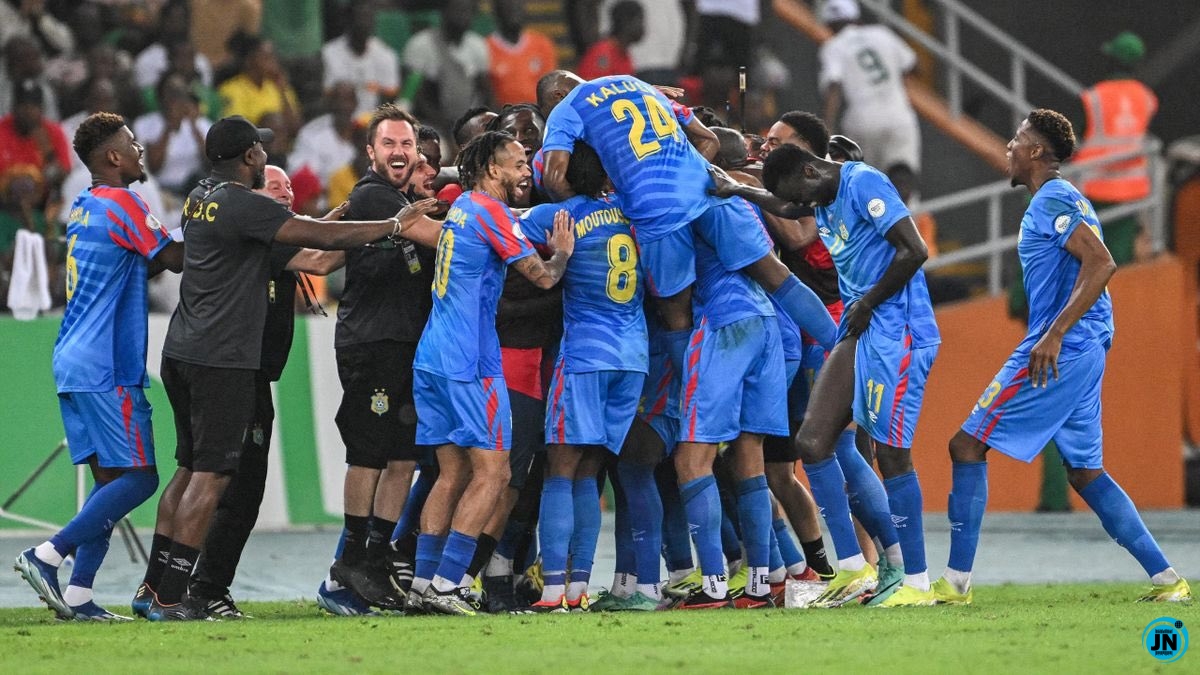Nigeria’s dreams of qualifying for the 2026 FIFA World Cup suffered a major setback on Sunday after the Super Eagles were eliminated by DR Congo in a dramatic playoff final held in Rabat. The tightly contested encounter ended 1-1 after extra time, only for Nigeria to fall 4-3 in the ensuing penalty shootout, crushing the nation’s hopes of a return to football’s biggest stage.
Frank Onyeka initially gave the Super Eagles an early lead, sending waves of optimism through Nigerian fans, but DR Congo responded before halftime and ultimately displayed greater composure in the shootout to secure victory. The outcome highlighted both the promise and heartbreak of Nigeria’s campaign, as the team fought valiantly but could not overcome key moments of pressure.
Nigeria strike early but lose grip
The match began with Nigeria asserting themselves aggressively. Within three minutes, Frank Onyeka struck with precision, his low shot taking a fortunate deflection that wrong-footed DR Congo goalkeeper Lionel M’Pasi and gave the Super Eagles a dream start. Nigerian fans celebrated the early breakthrough, hoping it would set the tone for a confident display.
However, as the first half progressed, DR Congo gradually regained control. Chancel Mbemba’s commanding presence in defense and Aaron Wan-Bissaka’s incisive runs tested Nigeria’s backline repeatedly. Despite Nigeria’s initial dominance, the Leopards’ measured approach allowed them to weather the early storm and begin asserting themselves on the ball.

DR Congo equaliser after defensive slip
The Leopards capitalized on a defensive lapse in the 32nd minute. Mechak Elia intercepted a misjudged pass from Alex Iwobi and calmly slotted the ball past Stanley Nwabali, leveling the score at 1-1. The equalizer energized DR Congo and shifted momentum, while Nigeria continued to probe with attempts from Victor Osimhen and Ademola Lookman, though the finishing touch remained elusive heading into halftime.
Nigeria struggle after Osimhen’s exit
The second half saw Nigeria’s attacking threat diminished when star striker Victor Osimhen was forced off early due to injury. His absence provided DR Congo the space and confidence to press forward more assertively. Stanley Nwabali was called into action multiple times, producing crucial saves, including a remarkable goal-line clearance that temporarily kept Nigeria in contention. Nevertheless, the physical toll and mounting pressure began to show, testing the Super Eagles’ resilience.
Extra time saw both teams battle fatigue, with DR Congo dictating the tempo and pinning Nigeria back into their defensive third. While the Leopards had a goal disallowed for a foul during the buildup, their relentless pressure kept the Super Eagles on edge and ultimately led to a nerve-wracking penalty shootout to decide the winner.
Penalty shootout decides Nigeria’s fate
After 120 minutes with the score still tied, the match proceeded to penalties. DR Congo converted four of their six attempts with composure, while Nigeria’s three missed penalties proved decisive. The shootout heartbreak left Nigerian players and fans devastated, as years of preparation and high hopes ended in a cruel and narrow defeat.
With this result, DR Congo advance to the Intercontinental Playoffs scheduled for March 2026, edging closer to World Cup qualification. Meanwhile, Nigeria must regroup and reflect on what went wrong, with lessons to be learned for future campaigns. The nation’s football fraternity is left to contemplate missed opportunities and the fine margins that define international competition, as the Super Eagles’ 2026 World Cup journey ends prematurely in a dramatic fashion.